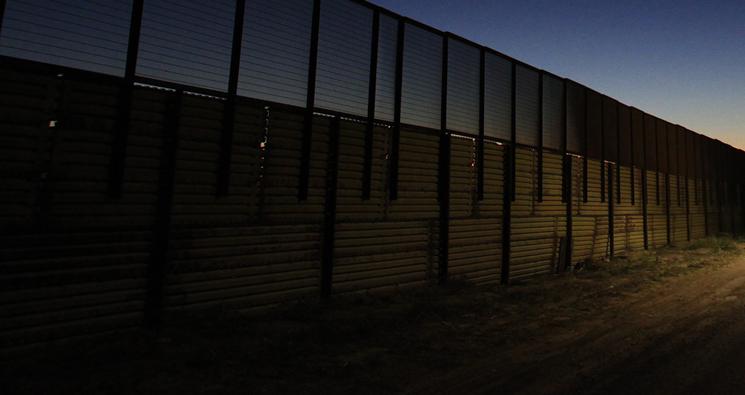Supreme Court Urged to Uphold Arizona Immigration Law
It's a case that deserves the consideration of the U.S. Supreme Court.
The issue: Arizona's immigration law S.B. 1070 - Arizona's effort to protect its borders and citizens by enacting a state law that targets illegal immigration. The Obama Administration is challenging several key provisions of the law and a federal appeals court has sided with the Obama Administration.
The state of Arizona is asking the U.S. Supreme Court to take the case and overturn the decision of the U.S. Court of Appeals for the Ninth Circuit.
This is such a critical case that we have now filed an amicus brief supporting Arizona’s Petition for Writ of Certiorari – urging the high court to reverse the appeals court. It's our position that Arizona's S.B. 1070 is constitutional because it mirrors federal immigration law and incorporates federal standards.
We are not alone in our request for the high court to take the case. We represent 59 members of Congress and nearly 60,000 Americans in our amicus brief.
Our argument is simple and direct: the Supreme Court needs to take this case because the federal appeals court erred and reached a faulty conclusion when it blocked key provisions of S.B. 1070.
In our brief, we argue that “the Ninth Circuit’s decision undermines federalist and separation of powers principles by permitting the Administration’s policy preferences to trump Congress’s statutory acknowledgement that states have inherent authority to enforce laws that profoundly affect their citizens’ welfare. The Ninth Circuit’s decision effectively leaves the states powerless over unchecked illegal immigration and the associated social and economic costs that their citizens must bear.”
We are also urging the high court to take the case because many states across the country are enacting laws like Arizona’s and that most of these mirror federal immigration provisions. “The legitimacy of state efforts to promote national policy as embodied in federal statutes is an important issue that requires this Court’s resolution,” the brief contends.
It is our position that the appeals court decision “treads upon federalism by stripping the states of all sovereignty over problems that Congress and our federalist system have committed to the states.”
Our brief contends the 9th Circuit decision conflicts with the Supreme Court’s decision in May in the case of Chamber of Commerce v. Whiting, in which the high court concluded that an Arizona employer-sanctions law that penalizes businesses that knowingly hire illegal immigrants is constitutional.
In our brief, we represent 59 members serving in the 112th U.S. Congress including four members of the U.S. Senate: John Barrasso, Jim DeMint, James Inhofe, and David Vitter. Also included are 55 members of the U.S. House of Representatives including Arizona Representative Trent Franks and the following: Rodney Alexander, Michele Bachmann, Roscoe Bartlett, Brian Bilbray, Rob Bishop, Kevin Brady, Mo Brooks, Paul Broun, Dan Burton, Ken Calvert, John Campbell, John Culberson, John Duncan, John Fleming, Randy Forbes, Virginia Foxx, Scott Garrett, Phil Gingrey, Louie Gohmert, Tom Graves, Ralph Hall, Wally Herger, Lynn Jenkins, Walter Jones, Jim Jordan, Mike Kelly, Steve King, Adam Kinzinger, John Kline, Doug Lamborn, Jeff Landry, James Lankford, Robert Latta, Jerry Lewis, Cynthia Lummis, Don Manzullo, Michael McCaul, Tom McClintock, Thaddeus McCotter, Gary Miller, Jeff Miller, Tim Murphy, Sue Myrick, Alan Nunnelee, Joe Pitts, Ted Poe, Mike Pompeo, Bill Posey, Phil Roe, Dana Rohrabacher, Ed Royce, Jean Schmidt, Bill Shuster, and Lamar Smith. We also represent more than 57,500 Americans nationwide who have signed on to our Committee to Protect America's Border. The fact is that the state of Arizona acted appropriately and constitutionally when it took action to target illegal immigration. This state law is sound and gives Arizona the constitutional authority to protect its borders and its citizens. As other states consider similar laws to do the same, it’s important that the Supreme Court take this case and put an end to any questions about the validity and constitutionality of the Arizona law. There is no question that states can take action that compliments federal immigration law without violating it. That’s exactly what Arizona has done and we’re hopeful the high court engages this issue and reverses a flawed appeals court decision. We will keep you posted on this case.
